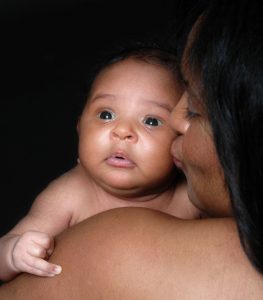Research Team: Tony Antoniou (Principal Investigator); Mona Loutfy; Ahmed Bayoumi, Rick Glazier; Mark Yudin; Jason Brophy; Wangari Tharao; Shari Margolese; Khatundi Masinde
What is this research about?
 With advances in HIV care, women living with HIV can live healthy, active lives; over two-thirds wish to become mothers. With appropriate prenatal care, transmission from mother to child is highly unlikely, but there has been little study of the other risks that might face these mothers and their newborns. This study is looking at the care women receive during pregnancy in Ontario and at the risk of complications. The research used administrative health databases, housed and maintained by the Institute for Clinical Evaluative Sciences (ICES), to look at the treatment use and outcomes for women receiving pregnancy care between 2000-2008.
With advances in HIV care, women living with HIV can live healthy, active lives; over two-thirds wish to become mothers. With appropriate prenatal care, transmission from mother to child is highly unlikely, but there has been little study of the other risks that might face these mothers and their newborns. This study is looking at the care women receive during pregnancy in Ontario and at the risk of complications. The research used administrative health databases, housed and maintained by the Institute for Clinical Evaluative Sciences (ICES), to look at the treatment use and outcomes for women receiving pregnancy care between 2000-2008.
Most of the HIV-positive women who became mothers in Ontario from 2000-2008 were originally from regions with a high prevalence of HIV infection, particularly Africa and Caribbean. This project will look particularly at the experiences of these immigrant women.
Outcomes
This research demonstrated that women living with HIV were less likely to receive adequate prenatal care than women without HIV. This was particularly true for recent immigrants from Africa and the Caribbean. The researchers speculate that this inequity is related to a series of inter-related social and structural barriers to care for women living with HIV including stigma, discrimination, difficulty for newcomers in navigating the Ontario health care system and a lack of preconception counselling for women living with HIV. In addition, this study showed that women living with HIV were more likely to have preterm, low birth weight and small for gestational age births than HIV-negative women. Qualitative research looking at women’s experiences of care is continuing.
The research also found that women with HIV were more likely than HIV negative women to be readmitted to hospital in the 30 days after the birth. (published in AIDS Research and Human Retroviruses, 2016). The most common reason was wound infection, likely related to the high rate of caesarean births in these women. There was no evidence that the newborn children of women living with HIV were at greater risk of hospitalization.
OHTN Support:
This research is supported by a $93,175 OHTN project grant. First awarded in June 2013, the project will complete in 2016. Principal Investigator Tony Antoniou is also supported by an OHTN CIHR New Investigator grant ($300,000; 2014-2019).